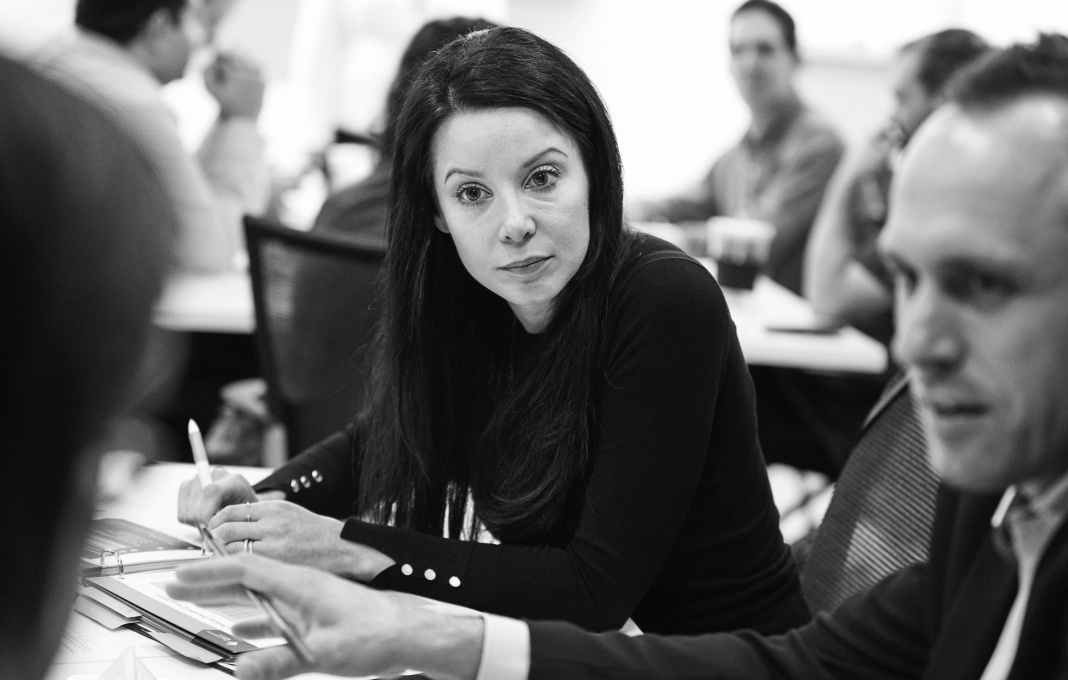Imagine this: You’re driving to work, it’s raining, and you’re late. When you arrive, the team meeting has already started. After the meeting, you open your email to find two clients needing immediate help and an email from a colleague saying they’ll be late on their end of the project you’re working on together.
Even just one of those stressful events starting the day can easily put us in a negative mood at work. And adverse feelings can lead to thinking negatively.
Why do we think this way?
Out of the entire broad spectrum of human emotion, science has narrowed our feelings down to just five core basics:
- Enjoyment
- Anger
- Fear
- Disgust
- Sadness
Notice how only one positive emotion appears on the list. Unfortunately, unhappy emotions usually lead to negative thoughts, and this is just part of our biology. It’s called the “negativity bias,” and it explains why humans are prewired to think more pessimistically than positively.
Every human since the cavemen has paid attention to the five basic emotions, perhaps heeding their fear instincts the most.
Listening to their thoughts is what kept our primitive ancestors from being eaten by sabre-toothed tigers. Fear and other “bad” emotions trigger the fight-or-flight response, which releases cortisol and other chemicals into the bloodstream, helping us deal with stressful situations.
In the modern-day jungle of the workplace, this instinct and these stress chemicals kick in just as they did for our ancestors. This can lead to negative thoughts at work.
Why do we get this way at work?
Work can be a place of many stressors. So, when we’re at work, it’s easy to drop into our negativity bias.
A person who doesn’t feel safe speaking up at work might slip into unhelpful thinking, such as “no one will listen to me anyway,” or “I’ll get in trouble if I say the wrong thing”. This stems from a lack of psychological safety.
People who don’t feel confident in their skills or knowledge can easily fall into thoughts such as “I’ll never be able to finish this project” or “I’ll never make that deadline.”
Managers and leaders might lack self-confidence, leading to thoughts such as “no one will see me as a leader” or “they’ll never follow me.”
When we think negatively, we are less creative, less productive, and may even manifest health problems.
Whatever type of stressor we face at work, it’s likely to drop us into negative thinking.
But if we know what to look out for, we can reframe our thoughts and move in a positive direction.
How to reframe negative thoughts
When we’re feeling good, there is little reason to analyse our thoughts. Pessimistic thoughts, however, require a much closer look so we may reframe them into something useful – if not positive.
Reframing our thoughts isn’t about stopping negativity from occurring in the first place. As we’ve shown, it’s a part of our nature to think this way.
But often we overreact and imagine the worst when instead we can learn to reframe our negative thoughts to overcome them and become happy, confident people.
A great way to reframe negative thoughts and keep them away is to practice daily affirmations. Empower yourself with your words and truly believe them. And say them in present tense because stating something about yourself as a fact can help make it so. Here are some simple positive affirmations for success.
For Employees:
- I know what I’m doing, and I do it well
- Things are always working out for me
For Managers:
- I am a positive role model for others
- I am helping empower employees to be their best
For Senior Leaders:
- I inspire others with my words and actions
- I am a good leader who cares about my employees
These affirmations of success can lead to a more positive attitude at work and keep away negative thoughts.
If you’re interested in learning more about managing your thoughts, then I invite you to explore the new Dale Carnegie book Take Command written by Joe Hart and Michael Crom that explains how to Take Command of our mindset, our relationships and our future.
Related: Building employee self-confidence












